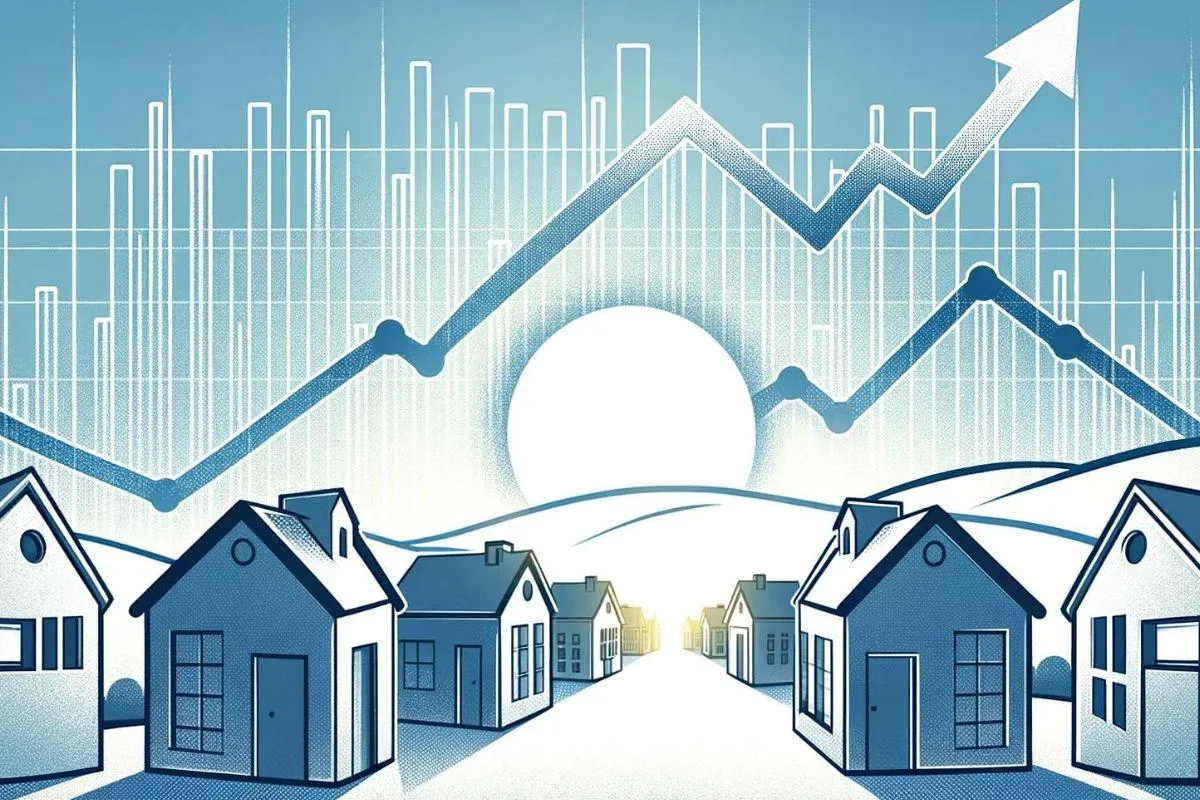
Housing and the Stock Market
The start of new construction housing increased 10.7% to 1.521 million units month-over-month to an annualized rate in February after falling 12.3% in January. The February increase was well above the consensus of 1.449 million units in Econoday’s survey of forecasters. The significant increase in new housing starts in February may be partially due to the poor weather in January and mortgage rates dipping below 7% in February to encourage builders to start many of their projects. Another motivator for contractors is the continual decline of inventory of existing homes for sale, as existing homeowners are still reluctant to give up their low-interest fixed-rate mortgages. New construction of single-family homes remains the largest contributor to housing starts, increasing 11.6% to 1.129 million. Even with the solid rebound of housing starts in February, the improvement in the housing starts is still well below the recent peak of 1.8M new starts reached in April 2022.

There are several reasons we monitor housing starts. One is it is one of the ten indicators included in The Conference Board Leading Index that we also monitor. Second, the increase or decrease in housing starts is directly related to the confidence that home builders and their economists have in the future of the economy. Large-scale multi-family developments take years to build and stabilize with tenants that developers will not pursue until they have confidence economic conditions are stable for the next several years. In addition, single-family home builders need to have confidence consumers can buy their residential properties with affordable mortgage interest rates and a stable economy.
As we have mentioned, consumer spending represents 66% of the US economic activity. We have identified a direct correlation between the stock market and the economy to consumer confidence and spending. When household finances, consumer confidence, and consumer spending are favorable, that is typically a good indicator for stock prices, the economy, and the housing market.
Considering the significant amount of money people spend to buy a home and often subsequent spending on home improvements, one would understandably believe there is a strong correlation between housing and the stock market. In other words, if the stock market is rising, so would home prices, and the opposite of declining stock prices, so would home prices.
Unfortunately, this does not appear to be the case. There are several cases where home prices and housing starts have dropped while the stock market has performed well and vice versa. In fact, only twice since WWII has the housing market crash coincided with a stock market crash, with the most recent case in 2008. In an opposite scenario, the dot.com stock market crashed from 2000 to 2003 when the major indices dropped 50% or more while house prices and housing starts rose during the same period.
Below is a chart comparing housing starts to the S&P 500 since 1985.
The chart illustrates several occasions of the disconnect of housing starting to the S&P 500, one rising while the other declines. The difference in volatility between these two indicators is also illustrated. Houses started plummeting 80% from their peak in January 2006 of 2.273M. New homes started to their bottom in March 2009 with a mere 478K new starts. The construction industry suffered for over three years of declining house starts and is still 67% below its former peak 18 years later.
Meanwhile, the S&P 500 declined almost 50% from July 2007 to its similar timed bottom in March 2009 for a duration period of only 21 months. More importantly, the S&P 500 had rebounded to its former high by March 2013 and is now currently 3500% above its July 2007 level.

Nonetheless, it is better news than not for the housing market to improve. Consumer spending increases with more housing activity, which increases economic activity. Rising property values, which typically occur with real estate activity, also increase revenue to local municipalities and the federal government. Unfortunately, our observation is that housing statistics that include home prices and construction are not reliable indicators or precursors to the future activity of the stock market. Beware that while we all enjoy watching our home increase in price, it may be a false positive of the future growth of your 401k or individual investment accounts.
What Does This Mean to Me?
Despite the lack of correlation between housing to the stock market, the more accurate indicators of consumer spending and consumer confidence remain positive. Since the S&P 500 bottomed out on October 27, 2022, the index has rallied above and remains above its 20, 50, and 200 Day Moving Averages (DMA).

This is also true for the NASDAQ index, which has been the top-performing of the major indices since October 2022.

We maintain a favorable rating in the US stock market and economy.
Let us know your thoughts on this Weekly Brief. We welcome the opportunity to speak with you to discuss your financial goals and ways we may be able to assist you and your family.
CONTACT
Check the background of your financial professional on FINRA's BrokerCheck.
The content is developed from sources believed to be providing accurate information. The information in this material is not intended as tax or legal advice. Please consult legal or tax professionals for specific information regarding your individual situation. The opinions expressed and material provided are for general information, and should not be considered a solicitation for the purchase or sale of any security.
We take protecting your data and privacy very seriously. As of January 1, 2020 the California Consumer Privacy Act (CCPA) suggests the following link as an extra measure to safeguard your data: Do not sell my personal information.
The information on this website is the opinion of Up Capital Management and does not constitute investment advice or an offer to invest or to provide management services. Before purchasing any investment, a prospective investor should consult with its own investment, accounting, legal, and tax advisers to evaluate independently the risks, consequences, and suitability of any investment.
Copyright 2024 | Privacy Policy | Terms & Conditions

